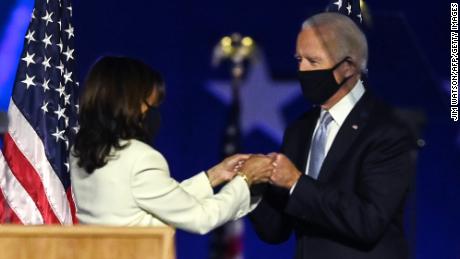Opinion: The fight over history isn’t really about the 1619 Project
Denouncing works that “tell America’s story solely as one of oppression and victimhood,” the 1776 Commission’s report insists that real history is history that focuses on the country’s successes, with only an occasional nod to its failures.
The report itself does not amount to much. It is the detritus of the waning days of the Trump administration, a bit of unfinished business sent out the door in the closing hours and now swept away by an incoming administration. But as a study in the growth of right-wing pseudohistory, it’s a key document.
As pseudohistory, it argues from ideology rather than evidence, starting with an argument — that all bad things come from the left — and then pretzeling the past to fit a politically expedient thesis, one that deliberately erases the need to grapple with things like racism or contradiction. Under the Trump administration, proponents of this ideology reached a new peak of influence, and Trump’s defeat does not relegate them to the fringe.
Reading history through the 1776 Commission’s ideological lens produces some pretty strange conclusions. In the report, anti-racists and anti-fascists are the successors of enslavers and Nazis.
But they do more than fatten their authors’ wallets: they are part of the alternative reality constructed by conservative media. (Not coincidentally, many of the authors of these books are right-wing media figures, from Brian Kilmeade and Glenn Beck to Dinesh D’Souza and Bill O’Reilly.)
That tissue-thin argument does not stand up to any rigorous scrutiny. But it’s not meant to. The point of these pseudohistories is not to construct a careful argument about the past — or to educate anyone looking to know more — but rather a set of talking points that can be used to shut down any meaningful conversation about racism.
The 1776 Commission is written from that same defensive crouch. Rather than engage in a conversation about the way racism has shaped the history and institutions of the United States, they have written a field guide for dismissing such discussions as efforts to “demean America’s heritage, dishonor our heroes, or deny our principles.”
Despite the carelessness with which many of these far-right conservatives treat history, they understand how important, and how powerful, our historical narratives are. The stories we tell about our past inform our understanding of the present and our vision for the future. That’s why the battles over history are so fierce.
In more recent years, Black activists have challenged the whitewashed history of the Confederacy represented by unapologetic displays of the Confederate flag and the monuments to Confederate leaders, sparking increasingly visible — and in the case of Unite the Right in Charlottesville, deadly — clashes in the shadows of those monuments.
Even Trump’s slogan, “Make America Great Again,” was rooted in an argument over history: that there was an Edenic national past that had been lost, and that former President Trump vowed to restore.
In dissolving the 1776 Commission on his first day in office, President Biden helped end one source of misinformation about our past, a reminder that, as we work to restore democracy, we will need to restore honest inquiry and accurate history as well.
![]()








